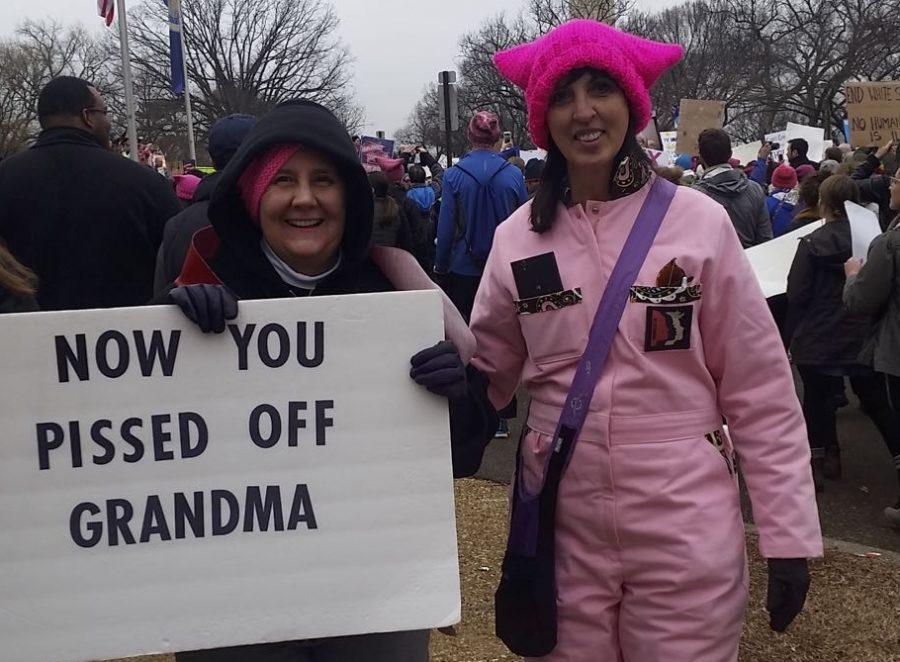Professor of English Judy Wilson reflects on the Women’s March on Washington
“What does democracy look like?”
“This is what democracy looks like!”
SMSU Professor of English Judy Wilson traveled to Washington D.C. to join the 1.2 million who participated in the Women’s March on Jan. 21.
Wilson recalls the moments leading up to the historic event fondly.
When preparing for the march, she met many women who could not attend. Wilson had a solution for these women.
“Write your name. I’ll put you in my pocket and take you with me,” Wilson said.
As a result, the pockets of Wilson’s pink outfit on the day of the march were filled with the names of women who had the desire to march, but not the chance.
Wilson said that the march truly started for her during the last pit stop the bus took before arriving in D.C. Even though it was three hours from their destination, there were buses as far as the eye could see, and so many women that getting to restroom was impossible.
“The energy was there, but fear too,” Wilson said.
As the women on Wilson’s bus got closer to D.C., they were able to watch the events of Inauguration Day on their social media. Small groups were being arrested, and there were instances of violence. Some women were worried because the numbers of the march were going up continuously, and there was a high chance of violence.
“There was a signal sent out: ‘This must be peaceful,’” Wilson said.
One of Wilson’s favorite memories of those first few moments was the welcome that the marchers received from the people of Washington D.C.
A garbage truck drove by with two men inside who honked and gave the marchers the resistance fist. As there was constant traffic on passing streets, many others greeted them in similar ways. Women stood in their doorways with their children and pets, greeting the marchers.
Wilson recalls little to no police presence at the march anywhere and absolutely none in the national mall.
“It did belong to us that day. It was our national capital,” Wilson said.
Of course, there wasn’t much marching going on. There were so many people at the march that it was utter gridlock.
“If the crowd moved, everyone moved. You were at the mercy of the crowd,” Wilson said.
Wilson was surprised by the variety of people attending the march. The elderly and the disabled came to protest, but most surprising to Wilson was the amount of men accompanied by their sons.
Male participation was very important during one of the chants. After women shouted, “my body, my choice”, men would shout back, “her body, her choice.”
“They were backing us up. It was the most powerful moment for me in the march,” Wilson said.
Wilson also explained her personal meaning as to why protesters are sometimes called demonstrators.
“They are a demonstration of the power of the people, a visual representation. That’s what we did,” Wilson said.
As for the movement, Wilson is quick to say that it isn’t over. There are more marches scheduled for this year and opportunities for activism on womensmarch.com.
“Now is not a time to be quiet,” Wilson said. “All young people need to know how to use their political voice.”

